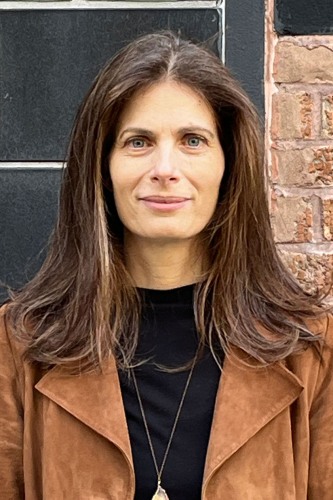
Nitsan Chorev
Biography
Nitsan Chorev is the Harmon Family Professor of Sociology and International and Public Affairs.
Among other positions, she was a fellow at the Center for Advanced Study in the Behavioral Sciences at Stanford University, at the European University Institute, at the Institute for Advanced Study in Princeton, at the Woodrow Wilson International Center for Scholars, and at the UCLA International Institute. She specializes in global political economy, global health and foreign aid. She is on the Editorial Boards of Politics & Society and Theory & Social Inquiry.
In addition to numerous articles and other publications, she is the author of three books. "Give and Take: Developmental Foreign Aid and the Pharmaceutical Industry in East Africa" (Princeton University Press, 2020), "The World Health Organization between North and South" (Cornell University Press, 2012), and "Remaking U.S. Trade Policy: From Protectionism to Globalization" (Cornell University Press, 2007). Chorev is currently working on a book project on the relations between the high-tech industry and the military in Israel.
Research
Chorev's most recent book, "Give and Take: Developmental Foreign Aid and the Pharmaceutical Industry in East Africa" (Princeton University Press, 2020), considers the impact of foreign aid, why it is considered so inefficient, and under what conditions it could be effective. Against the backdrop of Africa's colonial legacies and pursuit of economic growth, the battle against AIDS and malaria, and bitter negotiations over affordable drugs, the book offers an important corrective to popular views on foreign aid and development. Based on a detailed history of local drug manufacturing in Kenya, Tanzania, and Uganda, Chorev makes a clear case for the potential effectiveness of "developmental foreign aid." The book won the ASA Economic Sociology Section Zelizer Book Award and received an honorable mention for the ASA Global & Transnational Sociology Section Book Award.
In her second book, "The World Health Organization between North and South" (Cornell University Press, 2012), Chorev develops a theory of international bureaucracies and their role in international negotiations based on a study of the transformation of international health policies since the 1970s. How was the WHO bureaucracy able to transcend political turbulence and avoid having its agenda co-opted either by the small minority of wealthy nations or by the voting majority of poor nations? In the book, she shows that WHO bureaucrats employ reframing strategies that enable the bureaucracy not only to achieve consensus among member-states but also to reach a consensus that fits the bureaucracy's own principles and interests. The book focuses on two particularly contentious moments. The first occurred in the 1970s-1980s, when developing countries called for a more equal international economic order — the second, which started in the late 1990s, involved WHO's efforts to adjust to neoliberal policies in the United States and other wealthy countries.
In her first book, "Remaking U.S. Trade Policy: From Protectionism to Globalization" (Cornell University Press, 2007), Chorev looked at globalization as a political, rather than a merely economic, project and investigates what political conditions made globalization possible. She offers a political history of trade liberalization in the United States and at the GATT (later, the World Trade Organization) from the 1930s to the 2000s by tracing the political struggles and institutional transformations that allowed supporters of liberal trade to successfully win free-trade policies against what was initially an influential protectionist opposition. The book won the ASA Political Economy of the World-Systems book award.
Publications
"Give and Take: Developmental Foreign Aid and the Pharmaceutical Industry in East Africa." 2020. Princeton University Press.
“Making Medicines in Kenya, Tanzania, and Uganda in the AIDS Era: Toward a Sociology of Developmental Foreign Aid.” 2019. Sociology of Development 5(2): 115-146.
“Professionals and the Professions in the Global South: An Introduction” 2017. Sociology of Development 3(3): 197-210 (with Andrew Schrank).
“Making Knowledge Legitimate: Transnational Advocacy Networks’ Campaigns Against Tobacco, Infant Formula, and Pharmaceuticals.” 2017. Global Networks 17(2): 255-280 (with Tatiana Andia).
“International Organizations: Loose and Tight Coupling in the Development Regime.” Special issue of Studies in Comparative International Development, edited by Barbara Stallings and Peter Evans. 2016. 51(1): 81-102 (with Sarah Babb)
“Narrowing the Gaps in Global Disputes: The Case of Counterfeits in Kenya.” 2015. Studies in Comparative International Development 50(2): 157-186.